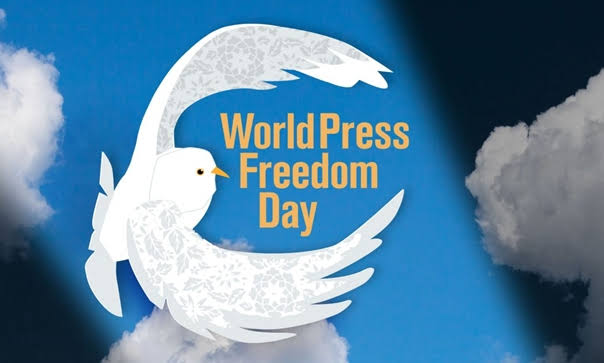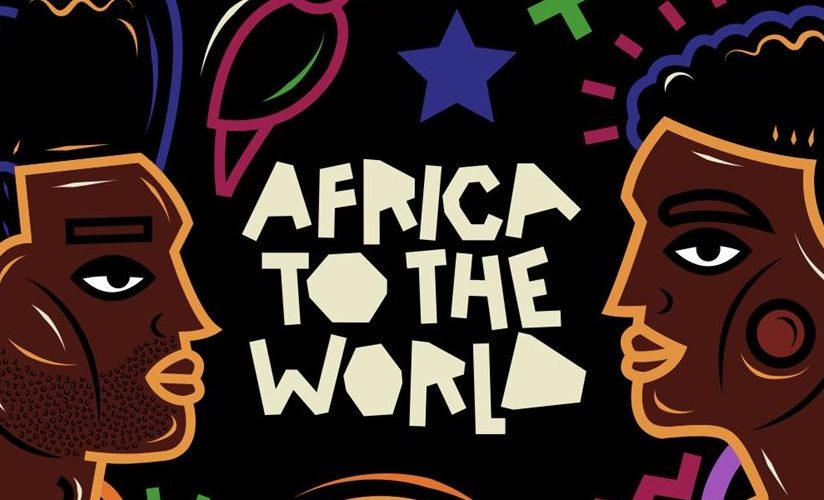
World Press Freedom: Experts call for collaboration, professionalism
By Oghale Mafuru
As the world all over commemorates World Press Freedom Day today, journalists and media practitioners have been reminded to uphold the tenets of the profession in line with the constitutional mandate of ensuring that public office holders are held accountable, in furtherance of true democracy.
Some members of the press who spoke on the theme: “Shaping a Future of Rights: Freedom of expression as a driver for all other human rights” at a forum organized by the Wole Soyinka Centre for Investigative Journalism (WSCIJ), today, decried the painful reality of press intimidation, abuse and censorship which has adversely curtailed the press to perform their constitutional responsibility as the fourth estate of the realm and watchdog of the society in the interest of equity, fairness, justices and responsible governance.
Stella Iyaji, Managing Editor, Daily Trust, Nigeria who recounted some ordeals and inhuman treatments suffered by some journalists in the discharge of constitutional mandate, explained that despite the constitutional framework on human rights and press freedom, infringements still persist with grave impunity. “The FOI was signed but to what extent are we using it? she asked rhetorically.
According to her, law suits, sanctions, assaults and threats are ways the press have been gag or suppressed overtime adding that the judicial system in the country has drastically discouraged journalists from seeking legal redress.
She said: “Not many cases have come to a logical conclusion in the courts, the delay in the court processes takes a toll on the cases. For instance, if it is a journalist versus an organization, how long can this journalist continue the case? Don’t forget that he is paying lawyers, he is going to court. So, a lot of times, you see them having to settle out of court even though the journalist may be right. Don’t forget that there is a financial angle to it”.
While urging journalists to remain tenacious and resilient in the face of a myriad of challenges, she advised not to compromise the truth by authenticating sources and giving right attributions.
“Most organizations do not respond to questions from journalists. They believe that when they don’t respond, the story will die a natural death. Now, when we write to them and they don’t respond, we write it in the story, we quote the text message we sent to them and their response to the text message and how many times we called” she said.
Commenting on the regulatory mandate of the NBC and its impact on the administration of press freedom in the country, Stella Iyaji implored the incoming government to halt the use of the regulatory agency as an instrument of oppression and suppression.
“I am hoping for an administration that will interfere less with the work of the media. I would like a new administration that will look into the work of the NBC. The NBC is supposed to be a regulatory agency but I am unable to draw the line between when it is a regulatory agency and when it is doing the bidding of the government. How is it possible that a regulatory agency is owned by the government? I think it is an issue that needs to be looked into because.
“If the regulatory agency is not owned by the government, you will not slam us with a fine because of what we have done. It will be based on professionalism. I would like the new administration to take its hands-off regulatory agencies, take the journalists more seriously and see them as partners in progress.
For her part, Motunrayo Alaka, seasoned media expert and Executive Director at Wole Soyinka Centre for Investigative Journalism, maintained that collaboration among journalists and media organizations is essential in the advocacy for press freedom.
“We are always stronger together as journalists, news media organizations and this collaboration can be multi-faceted. We can collaborate on the story that we publish so that when somebody decides to sue on that story, it becomes a difficult case to win. Collaboration is in terms of sharing resources and support for younger and smaller organizations, having legal support. As you are writing your story, include lawyers to check the story for use of language because sometimes, we can be generic in our use of language without attribution.
“Another way is to stick to professionalism and ethics at all costs. If you are not sure, leave out. Check before you publish and attribute the source. Sometimes, sources can be frustrating. Documenting the way they frustrated press freedom is a better way than saying all efforts to speak to the source proved abortive. It sounds lazy and many journalists and media houses do this. Document all efforts and include it in your story and the messages they sent. Most PR professionals and organizations representatives are trained not to answer questions” she added.
International Press Freedom Day is a day set aside to deepen the advocacy of press freedom as a veritable way to promote true democracy and representative leadership where public office holders are held accountable.




Comment
No comments found.